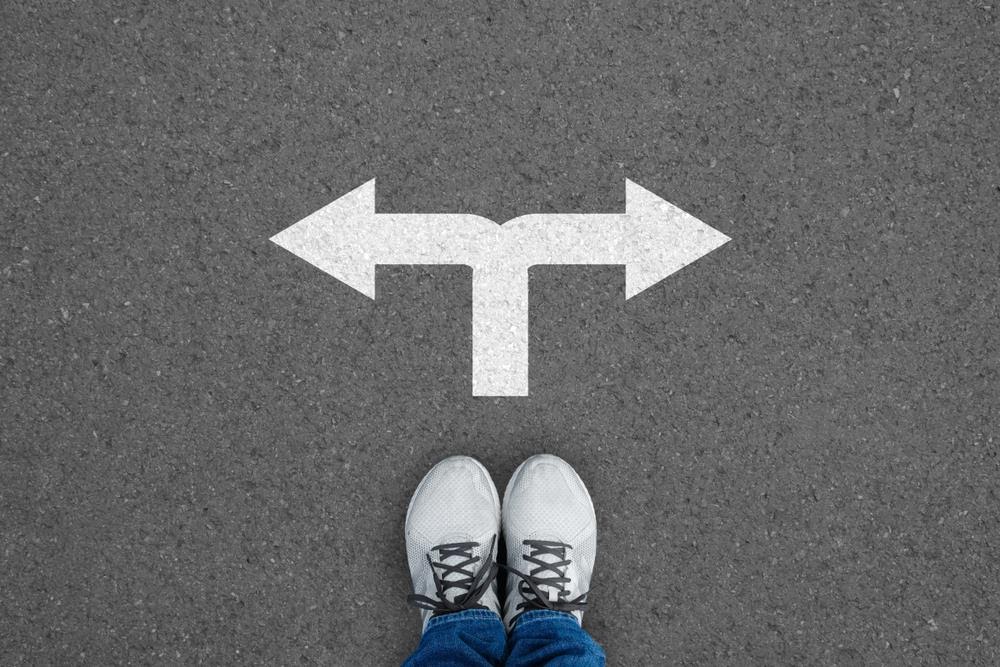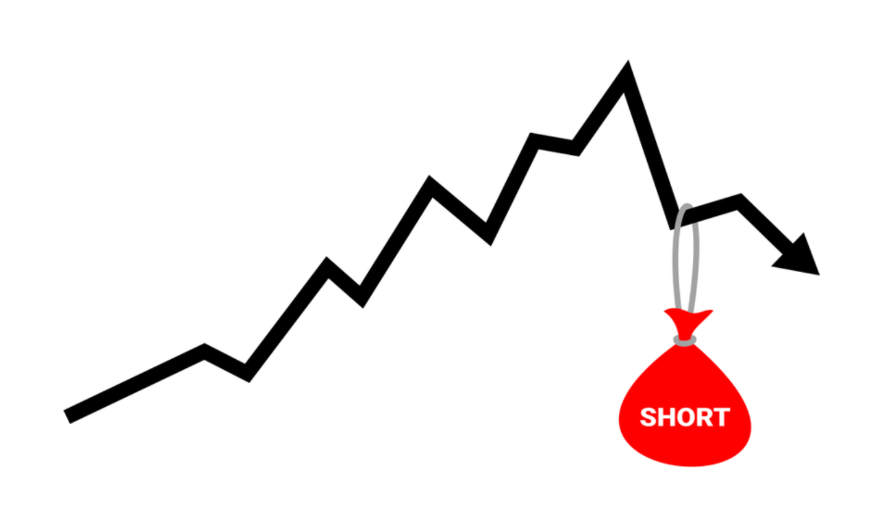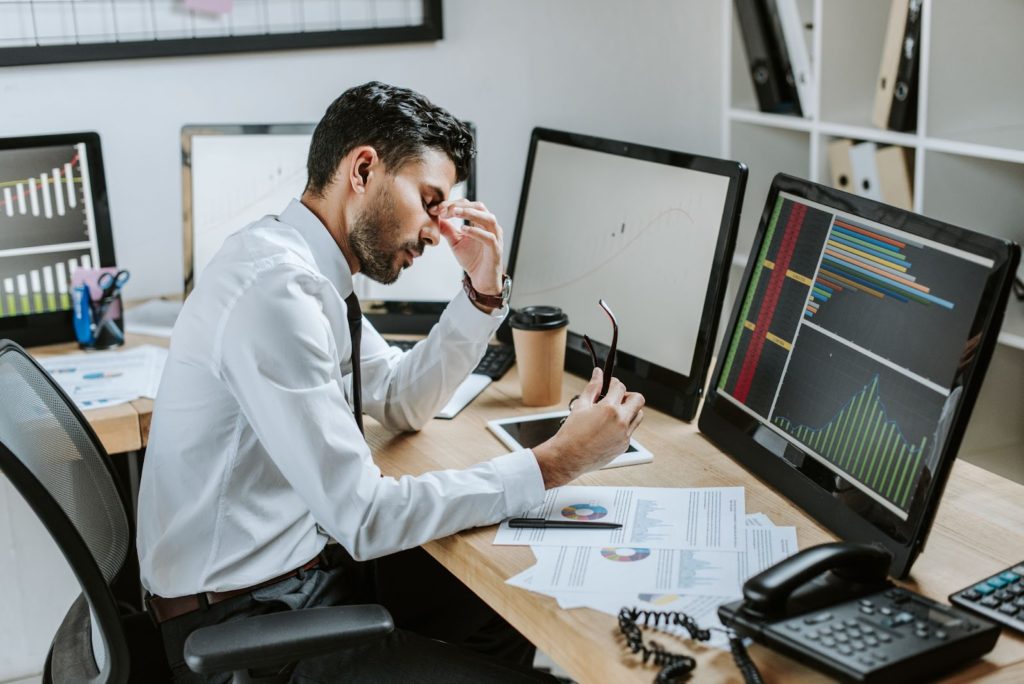Forget about the charts, alerts, meme stocks and catalysts.
Sometimes being the best possible trader you can be—has nothing to do with mechanics.
If you don’t have your head on straight… none of it will matter.
That’s why elite traders focus on trading psychology as much as they do on trading mechanics.
You see, the stock market seems to have emotions as hard as steel— which at times, can make the most seasoned trader shake in their boots.
Suppose you want to maintain a sustainable and long-term career as a trader. In that case, it’s imperative to adopt the mindset that enables you to maintain composure when you’re getting slammed by the market.
It’s only when traders succumb to the emotions of winning and losing do they find themselves taking bad trades, eating extreme losses, and taking profits off the table too early.
This post will teach you what trading psychology is—along with several tips on how to mentally prepare for the trading day.
Learn to trade without tunnel vision, and I guarantee that you will begin trading with a level head.
Trading Psychology
Psychology is defined as “the mental and emotional factors governing a situation or activity”.
In the case of trading, this would be the emotions in regards to your trading. Successful trading requires strength with numbers but also controlled emotions.
Many losses and bad trading decisions are made because traders get emotional and lose their judgement.
This is when traders make stupid decisions, forget basic logic, and neglect trading plans.
Does this sound familiar?
I hope not!
To the detriment of many traders, once they abandon their trading plan and forget the basics, things always seem to take a turn for the worst.
Why’s that?
Well… To have success as a trader, it’s important to have a mindset where you don’t let your emotions get the best of you.
This is what trading psychology is all about.

Impulsive Actions And Poor Decisions
Now…
You know what trading psychology means… but why does it matter?
Is it even worth spending time to develop skills that control your emotions?
Of course it is. Improving your trading psychology can have incredible effects on your trading career by helping reduce errors in judgment and many other impulsive actions that you might otherwise take.
How so?
Well, first, it’s important to consider how psychology affects you personally.
When considering your reactions, emotions, and feelings to trading gains and losses, be sure to identify key triggers that prompt you to make bad decisions.
For example, what do you do when you start to lose money in a trade?
There are only a few possible choices.
Do you:
- Panic and freeze and watch it go against you
- Hope for a turn around in the stock
- Cut losses and move on
I hope you choose 3, as that is the only correct answer for when a trade goes against you!
Unfortunately, many new traders will do options 1 and 2 to the detriment of their trading.
They begin to panic then freeze, just to watch the stock continue to move against them.
Or instead… rationalize holding on to the position longer in hopes that it will turn around.
As many traders who have done this know, it rarely works out that way. Instead, you end up losing a lot more with a “hold and hope” mentality.
When you become aware of tendencies and see your emotional reactions in trades, you can only identify issues in your trading that are holding you back.
Once you have identified such behaviors, you can take the necessary steps to change them.
This will help develop a stronger sense of steadiness while trading and leading you to a fulfilling and rewarding career as a trading professional.
How To Improve Your Trading Psychology
What’s the goal by improving your trading psychology?
To trades as if you were a computer, based on facts and data without any shred of emotion.
Let’s be honest. Not even the best traders can do that.
However, since we are all human, we are unable to turn off emotions entirely. The good news is we can take the necessary steps to improve these reactions and improve your trading.
Here are some of my tips to improve and refine your trading.
The Right Mindset
As a trader, you can benefit tremendously if you have a consistent routine you approach each trading day with.
For example… If you are constantly waking up at 9am and scrambling to search for charts, study the news headlines, and prepare for the trading day, chances are you will fail.
Why?
Traders with a flustered and rushed state of mind tend to make poor trading decisions when the markets open. They may make bad trades and miss opportunities to have seen if they had more time to prepare in the morning.
This is one example of why it’s important to not have a flustered and rushed state of mind while trading since it’s extremely hard to maintain a level head under pressure without the added stress.
So how would you fix this?
Try waking up a little earlier so there is more time to prepare for the day ahead.
It may help to set up a morning routine such as a coffee while reading the morning news, working out or taking a jog, or just meditating.
Whichever one of these (or none of these) you find works best for your personality could greatly impact your strategy and approach to trading.
You must approach all trades with a calm and relaxed mentality at all times. This could help reduce potential damage when you find yourself making poor quick decisions.
Strong Knowledge Base
One of the best ways professional football players improve their ability to play their sport is through knowledge of their sport.
And the same goes for trading.
What I mean is this…
Having a strong knowledge base of how trading works will set you up to make better long-term or quick decisions if needed.
By gaining a technical understanding of how trading works, you will be better suited to navigate many obstacles in your way throughout a trade and react calmly.
Here’s another way to think about it.
Would you feel comfortable tackling a major home renovation without the proper education?
Of course you wouldn’t!
You would research what is involved and what could go wrong throughout the project.
You would be prepared for any and all outcomes.
This requires knowledge and research of the project you are trying to accomplish.
The same is applied to trading.
When educating yourself about the markets, it’s important to have stable emotions and staying prepared.
This will put the ball in your hands to react correctly to the markets to minimize risks and make smarter decisions.
The key is a strong foundation of knowledge.
The Power Of Vision
Imagine how it would feel to win the Olympics.
It must feel pretty amazing, right?
Well, almost every athlete plays to achieve this vision.
It’s the “why” behind their struggle. It’s their driving force to keep pushing through hardships in their day to day routine.
So…Why not do the same with your trading?
Did you know that visualising success in your trading is one of the most motivational aspects of trading? It is a common factor among successful trading professionals.
Physical inspiration can prove helpful as well, which is why many people set realistic checkpoints instead of a single major endpoint.
Little victories over time add up to a giant victory, and the same goes in life as it does with trading.
Visualizing victories and aspirations to items you wish to purchase gives you the added fuel to go that extra mile.
Not long ago, The Huffington Post discussed the power of vision boards.
P.S. Did you know that over 80% of small business owners that used a vision board from the beginning reported that they have accomplished more than half the goals they had on their board.
By imagining the best-case scenario, you can inspire yourself to achieve greater things.
The Power Of Failure
It’s important to visualize success, but a trader should consider how it might feel or look like to lose big.
Imagine the worst-case scenario… the type where your account is being blown up from a trading mistake.
It’s gut wrenching to think about, but it’s a reality to many traders.
Now, this is not meant to scare you away from trading but instead an exercise to keep you from making foolish mistakes.
By considering the worst possible outcome, you can then take the necessary steps to avoid such outcomes. This is important to keep yourself from blowing up your account by trading irrationally.
One example of a bad trading habit is gambling on company earnings with no gameplan. Even though this sounds like a great way to hit it big, you may also go to the casino.
There are many times market surprises can hit a stock you trade that cause knee-jerk reactions.
Some are news driven, others seem to come from thin air. These random events have hurt even the most seasoned traders. It’s how you maintain composure is what keeps a trader to see the next day.
But don’t worry, there will be many more of those that come along at some point in your career. That’s why it’s important to learn to understand losses and where they come from and how to avoid the same mistakes later on.
By considering what could go wrong, you can make a trading plan that has entry and exit details designed to save you from making mistakes you might make without a plan. The more realistic and detailed your trading plan is will make it easier to follow during even the most hectic trading day.
Practice Makes Perfect
Do you think a professional baseball player just woke up one morning and declared that he was a pro?
No way!
So why would trading be any different?
Unfortunately, many new traders think they can just throw 50-grand into an account and make millions instantly.
This is the mentality that leads to gambling and forget that trading is not the casino.
Time is the great equalizer, and the more you spend on learning the proper techniques will lead you to become a better trader.
Practice is required to gain the mental strength to trade and improve your trading psychology.
Remember… Practice makes perfect!

Keep A Trading Journal
One way professional athletes improve their game is to review the good and bad of their past performances. It’s important to monitor, observe, and document your progress over time.
The way traders achieve “reviewing the tape” like professional athletes is to keep a trading journal.
Trading journals aim to keep a detailed record of what you do as a trader. This might be a document on a computer or handwritten on a piece of paper.
It’s important to document both your success and failures in order to copy the good and avoid the bad in the future.
When you track your trades, you will begin to paint a picture of what works and what doesn’t throughout your day. For example, you might find trends in your losses that indicate you should not trade between 11am – 2pm.
Over time this log will be an invaluable resource to improve your trading and make your mind stronger every trade.
Controlling Your Emotions
Losses can be a tough thing to manage for everyone… After all, who enjoys losing money?
Also when you’re on top of the mountain feeling confident and in control is when you risk more and more money. Suddenly things can go south, and you become a wreck and lose it all after a single bad decision.
Either way, emotions ruled you.
That’s not good.
Stick With Your Trading Plan
Let me ask you a question…
Have you ever gotten back home from the grocery store and then remember you forgot to buy something?
That’s because you didn’t write down what you planned to buy at the store!
P.s. I also bet you bought things you weren’t planning on buying too, like those cookies for a snack.
It’s human nature to forget things with the stress of life.
The same applies to trading.
A trading plan is like a roadmap for the trading day ahead of you. If you are a technical trader, you will have a list of 10-20 stocks to focus on with entry, exit and stop prices for each.
Just by making the plan and documenting it, you are more likely to stick with it. This helps you mentally prepare for the trade and the risks you are about to take on each trade. If stocks hit any of your prices, you then know how to trade it without any emotions.
A trading plan can help provide comfort and a feeling of security when trading gets hard. It will help keep you on track and make sure you focus on only the stocks you plan on trading.
Stop Orders and Mental Stops
Having stops in place is a great way to ease your mind during trades.
However, they are not the answer to everything while trading.
A stop order is an actual order type you place with your broker.
With a stop order, a trader specifies that you will buy or sell a stock when it reaches a specific price. That price is referred to as the stop price. Only once the stop price has been reached the order is executed.
Unfortunately, stop orders don’t tackle everything to protect your trading account.
Like athletes, after a long time on the court, they need a break and will take a seat on the bench to recover.
Potentially for the rest of the game… and the same goes for trading!
A mental stop is less tangible but equally as important.
A trader can feel beaten down, mentally fatigued, and even exhausted while trading.
One of the hardest things to do is perhaps the simplest. Often, a trader needs to stand up from the computer and walk away, but they cannot seem to do that.
This inability to walk away can do more harm and cause them to over trade and incur significant trading losses.
Never Stop Learning
By taking time to work on your trading psychology, you can greatly improve your overall career as a trader.
As Fort Minor said…
“This is…
Ten percent luck
Twenty percent skill
Fifteen percent concentrated power of will
Five percent pleasure
Fifty percent pain
And a hundred percent reason to remember the name.”
And the same applies to trading…
With each ounce of pain a trader grows, and this is why a trader should never stop studying and learning the financial markets.
Following the tips detailed in this post can help you take huge steps towards becoming a stronger trader.
Comments are closed.






11 Comments
Good stuff
Okay
Very very useful. Thank you very much.
Very useful.
Thank you very much.
Fantastic mesage, Kyle. It is a great and solid article. Thank you.
Joe Torres
Florida
Great article, life learning tips !
Thanks
Awesome article, really great perspective.
Awesome information. If I apply half of what’s said here, I know I will become a better trader.
This is to me: I shall begin
Thanks
Claudette McFarquhar
I am really enjoying reading your write ups .
Thanks
Very helpful and truthful I liked it very much to read it. Thank you
Good article